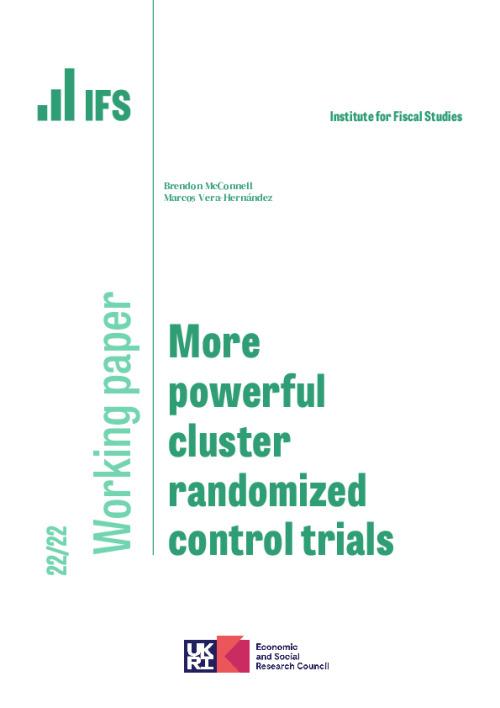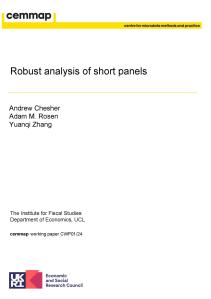Downloads

More powerful cluster randomized control trials
PDF | 832.49 KB
Balanced experimental designs, in which the number of treatment and control units are the same, do not maximize power subject to a cost constraint when treat-ment units are more expensive than control ones. Despite this, such balanced designs are the norm in economics. This paper describes methods to optimally choose the number of treatment and control clusters, and the number of units within treatment and control clusters, allowing for full flexibility. We use three archetypal examples from the development literature to illustrate the magnitude of the power gains, which lie between 8.5 and 19 percentage points.
Authors

Research Fellow University College London
Marcos is a Research Fellow at IFS, an Affiliate at the Rural Education Action Program and a Professor of Economics at the University College London.

Brendon McConnell
Working Paper details
- DOI
- 10.1920/wp.ifs.2022.2222
- Publisher
- Institute for Fiscal Studies
Suggested citation
McConnell, B and Vera-Hernandez, M. (2022). More powerful cluster randomized control trials. London: Institute for Fiscal Studies. Available at: https://ifs.org.uk/publications/more-powerful-cluster-randomized-control-trials (accessed: 4 May 2024).
More from IFS
Understand this issue

Gender norms, violence and adolescent girls’ trajectories: Evidence from India
24 October 2022

Empty defence spending promises are a shot in the dark
29 April 2024

Public investment: what you need to know
25 April 2024
Policy analysis

IFS Deputy Director Carl Emmerson appointed to the UK Statistics Authority Methodological Assurance Review Panel
14 April 2023

ABC of SV: Limited Information Likelihood Inference in Stochastic Volatility Jump-Diffusion Models
We develop novel methods for estimation and filtering of continuous-time models with stochastic volatility and jumps using so-called Approximate Bayesian Compu- tation which build likelihoods based on limited information.
12 August 2014

Is there really an NHS productivity crisis?
17 November 2023
Academic research

Sample composition and representativeness on Understanding Society
2 February 2024

Understanding Society: minimising selection biases in data collection using mobile apps
2 February 2024

Robust analysis of short panels
8 January 2024